Military Merit Medal, Type V, in Gold
SKU: 02.WUT.0124.101.01
Estimated market value:
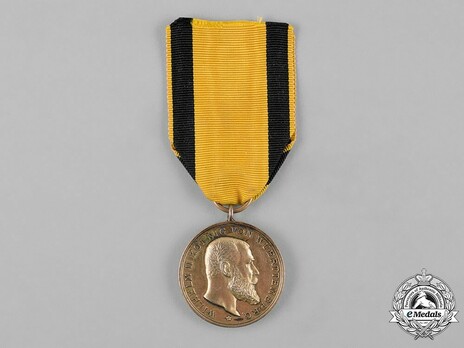
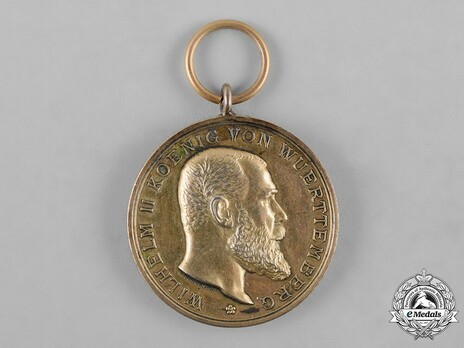
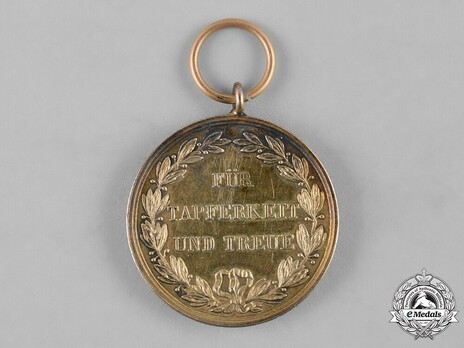
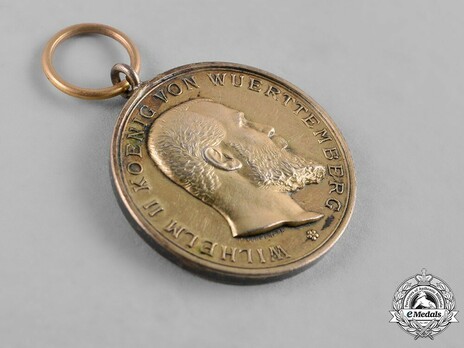
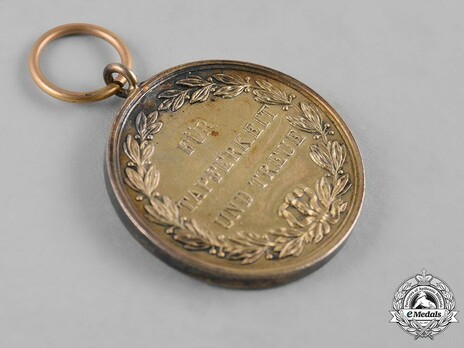
Estimated market value:
Attributes
History
The Military Merit Medal was originally instituted on May 30, 1794 by Duke Ludwig Eugen. The medal was originally only issued in silver, but in 1800 the Gold Medal was introduced for officers who demonstrated outstanding bravery in battle. The recipients were often officers who had not been awarded the Military Merit Order.
With the introduction of the Type II medals in 1806, non-commissioned officers also became eligible to receive the Gold Medal. Enlisted ranks were only eligible to receive the Silver Medal for acts of extraordinary bravery.
The Type III medals were established on September 23, 1818 by King Wilhelm I of Württemberg. The medals were designed by Johann Ludwig Wagner and feature the portrait of a young King Wilhelm I. They were suspended from the Knight’s Cross ribbon of the Military Merit Order.
In 1840, a new medal stamp was designed by Carl Friedrich Voigt from Munich. This version features the portrait of an older King Wilhelm I.
In 1864, the Type IV medals were established by King Karl of Württemberg. The medals were designed by Christian Schnitzspahn and feature the portrait of King Karl on the obverse. They were first awarded during the War of 1866.
The Type V medals were instituted on June 26, 1892 by King Wilhelm II. The obverse of the medals feature the portrait of King Wilhelm II. As of April 8, 1914, the medals were worn on a lemon-yellow and black striped ribbon. The medals were originally manufactured with a high gold content, but following the onset of the First World War, the gold content was severely reduced. The first medals were struck in 22 karat gold, and this was later reduced to 8 karat gold.
There are also examples of Gold Medals that were produced out of gilded metal. These medals were privately manufactured and were not official award pieces.
On November 30, 1917, it was determined that a golden laurel wreath pin could be worn on the ribbon in place of the actual decoration.
The Type V Gold Medal could be conferred upon enlisted ranks who had previously received the Iron Cross I Class. It is estimated that around 400 individuals who were not citizens of Württemberg received the decoration.
Many sources vary on how many Gold Medals were awarded. One source estimates that 4,411 Gold Medals were struck and 4,234 were awarded. The number and quality of the medals awarded by year is as follows: In 1914, 106 medals in 22 karat gold and 401 medals in 14 karat gold were issued; in 1915, 100 medals in 14 karat gold and 300 in 8 karat gold were issued; in 1916, 1,400 medals in 8 karat gold were issued; in 1917, 1,102 medals in 8 karat gold were issued; and in 1918, 1,102 medals in 8t karat gold were issued.

Versions
$650 USD
Gold
Obv: WILHELM II KOENIG VON WUERTTEMBERG Rev: FÜR TAPFERKEIT UND TREUE
28mm
$50 USD
Silver gilt
Obv: WILHELM II KOENIG VON WUERTTEMBERG Rev: FÜR TAPFERKEIT UND TREUE
28mm
$50 USD
Bronze gilt
Obv: WILHELM II KOENIG VON WUERTTEMBERG Rev: FÜR TAPFERKEIT UND TREUE
28.5mm
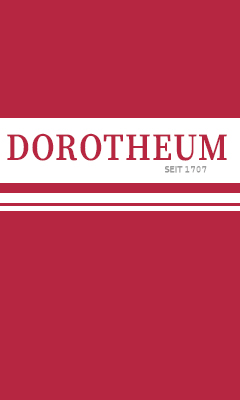
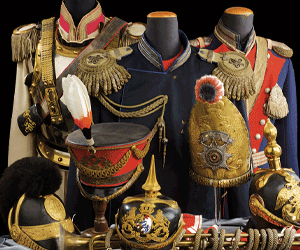
Comments
Sign in to comment and reply.

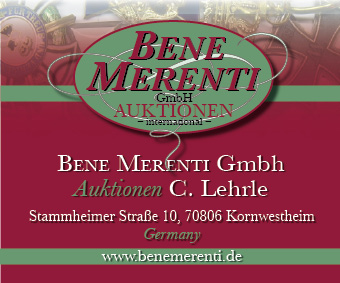
Scroll Top